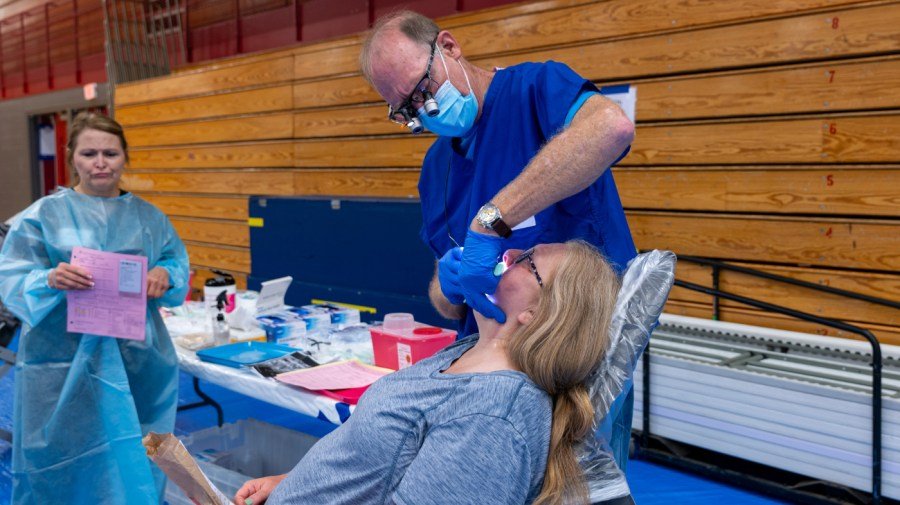
While we all await the resolution of the high-stakes congressional negotiations regarding keeping the government open beyond the end of the current fiscal year, it is important to keep in mind that federal-level spending decisions can have a major impact on state and local economies.
A new study by researchers at George Washington University’s Milken Institute School of Public Health analyzed the president’s fiscal year 2026 budget request for the Centers for Disease Control and Prevention and found, if enacted, the proposed budget would endanger public health and undermine state and local economies.
Here’s the bottom line: For every dollar the federal government saves in the president’s proposed budget for CDC, state and local economies would lose $1.40.
Some other findings from the study:
- The proposed budget would reduce CDC spending by $3.8 billion dollars, which would be 42 percent less than in fiscal 2024.
- State economies would lose $5.4 billion from their gross domestic products.
- An estimated 42,000 jobs would be lost nationwide, with one-third of the jobs in sectors outside public health.
- While these losses are considerable on their own, the analysis does not include the increased health care costs, lost productivity and premature deaths as more people get sick and disease prevention programs are scaled back.
This is not just about the economy. This is about lives. Less federal funding for public health programs is compounded by recently enacted legislation that is estimated to cut Medicaid and the Supplemental Nutrition Assistance Program by hundreds of billions over a 10-year period.
With less federal support for health and related programs, state budgets will be constrained — and, in turn, state, tribal, local and territorial health departments will be less resourced and less equipped to handle routine and emergent public health threats.
It is important to remember that implementation of public health occurs at the state and local level. These efforts are highly dependent on federal funding, with on average, about half of the funding for state and local public health activities derived from federal sources.
What kinds of health impacts can we expect? Based on the analysis of the president’s budget, we could see increased illness and death in the United States because the proposed budget would reduce readiness for infectious disease outbreaks such as measles; dramatically cut programs to prevent smoking and scale back cancer screening programs; reduce diabetes prevention, which would result in worse health outcomes and higher health care costs; and curtail efforts to prevent HIV and AIDS, just at the time when we have effective interventions to prevent the disease.
What remains unclear is how much of the president’s proposed budget will make it into the final appropriations package in Congress. Both the House and Senate appropriations committees have moved forward with something more closely resembling the “regular order.”
Earlier this month, the House Appropriations Committee approved a funding bill for the U.S. Department of Health and Human Services. The Senate Appropriations Committee did so over the summer. Both bills depart significantly from the president’s budget request for health programs and, by in large, maintain the current organizational structure of HHS.
The Senate bill would essentially continue current levels of funding, thus avoiding the economic impact found in this report. The House bill, while not as draconian as the president’s budget, does make some very deep cuts at the CDC (over $1.7 billion) including eliminating all HIV prevention funds, cutting chronic disease prevention programs and reducing investments in gun violence research and other injury prevention activities.
Whether these bills actually make it to the floor or we end up with a short or long-term continuing resolution, it will be important to remember that decisions about funding levels for CDC will have a long-term impact on the wellbeing and economic health of our communities and the nation.
Jeffrey Levi, Ph.D., is professor emeritus of health policy and management at the Milken Institute School of Public Health at the George Washington University. Anne Reid, MPH, is a lecturer at the Milken Institute School of Public Health at the George Washington University and director of the Funders Forum on Accountable Health. She has previously served as deputy chief of staff at the Department of Health and Human Services, chief of staff in the U.S. Senate and professional staff to the House Committee on Energy and Commerce.






